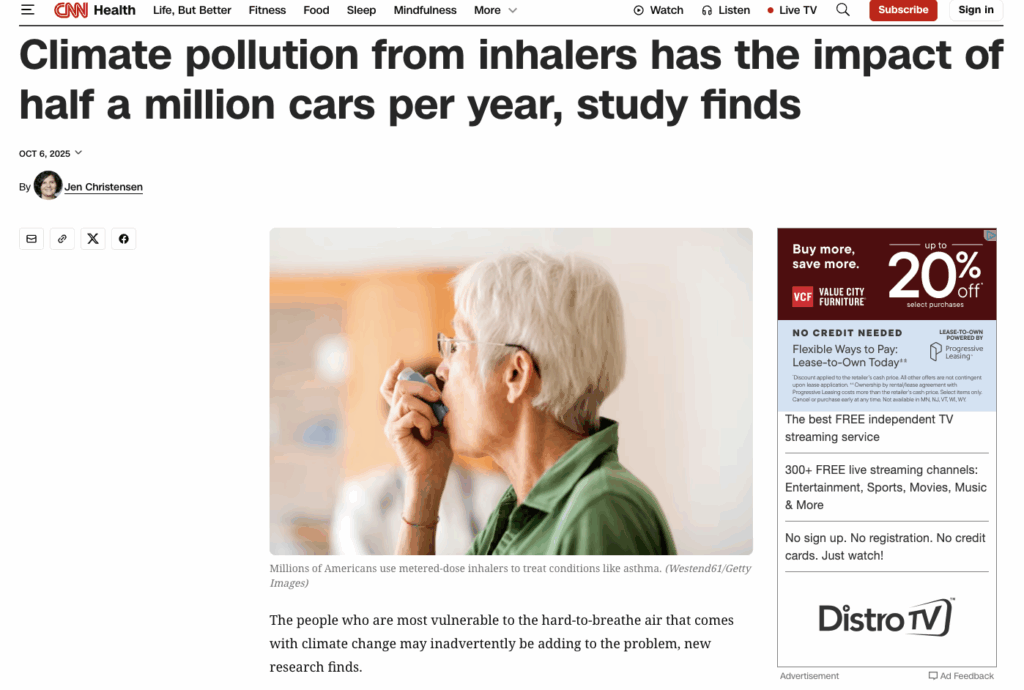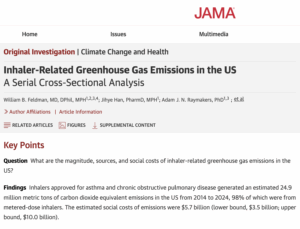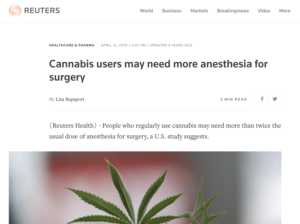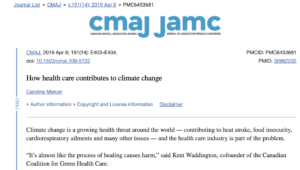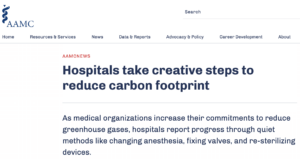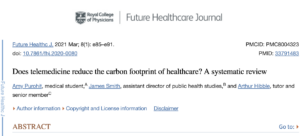CNN: Climate pollution from inhalers has the impact of half a million cars per year, study finds – Oct 6, 2025
Studies published Monday in the journal JAMA found that medication inhalers are “substantial” contributors to planet-warming pollution. It’s not the medicine itself that’s the problem; rather, it’s the HFAs (hydrofluoroalkanes). …
To treat conditions like asthma and chronic obstructive pulmonary disease, millions of Americans use what doctors often call metered dose inhalers, small boot-shaped devices that spray set doses of medication into the lungs in a quick burst using propellants called hydrofluoroalkanes, or HFAs.
…
In one year alone, one of the new studies says, planet-warming pollution from inhalers were the equivalent of driving more than half a million cars, or the same as electricity requirements for 470,000 homes, the study said.
In one of the new studies, researchers found that pharmacists dispensed 1.6 billion inhalers in the US from 2014 to 2024, generating 24.9 million metric tons of annual carbon dioxide equivalent emissions (CO2e). Annual emissions increased 24% from 1.9 million to 2.3 million metric tons of CO2e over that decade.
“It drives me crazy that the medication I use to address my symptoms drives climate change.”
#
By Joseph Vazquez
Tough noogies, asthmatics! CNN has officially pinned your breathing tool as the latest climate change threat to the environment.

Jen Christensen of the CNN Health & Climate Unit railed against respiratory-challenged individuals’s survival tool in an October 6 story headlined: “Climate pollution from inhalers has the impact of half a million cars per year, study finds.”
Apparently being full of hot air is no longer just an idiom for the lefty media. Christensen’s story was utterly ridiculous from the start: “The people who are most vulnerable to the hard-to-breathe air that comes with climate change may inadvertently be adding to the problem, new research finds.” Darn those respiratory-challenged people trying to stay alive, eh Jen?
For context, Christensen noted that “[t]o treat conditions like asthma and chronic obstructive pulmonary disease, millions of Americans use what doctors often call metered dose” inhalers. The problem, claimed Christensen, was how inhalers use “propellants called hydrofluoroalkanes, or HFAs,” which the wacky study she cited asserted was devastating the environment.
Christensen descended further down the rabbit hole, suggesting that lung cancer patients who literally can’t live without the metered-dose inhalers switch to alternative sources: “The other study published Monday shows that concerted efforts to reduce traditional inhaler use can make a difference.” In essence, she literally co-opted the same talking points climate lefties use to badger consumers about using renewables and EVs instead of fossil fuels and shoe-horned them into her beef with inhalers:
Metered-dose inhalers were responsible for 98% of the climate pollution from inhalers, the study found. People with lung conditions can’t live without them, but the researchers noted some might be able to switch to an alternative inhaler that emits fewer problematic propellants.
But — here’s a surprise — alternative breathing tools are more expensive! Christensen admitted in a buried paragraph that “[t]here can also be a price barrier with dry-powder inhalers, since many of the versions that use HFAs are generic and less expensive. And insurance doesn’t often cover the dry-powder kind.”
JunkScience.com founder Steve Milloy mocked CNN for being completely tone-deaf with its climate fanaticism in comments to MRC Business:
The ozone hole was a hoax. Global warming is a hoax. And because of these two hoaxes, greens don’t want asthmatics using inhalers to survive because the propellants may possibly contribute in unmeasurable amounts to the two easily debunked global atmospheric hysterias of our time.
“As an asthmatic who has relied on inhalers,” said Milloy, “it is wild that medical researchers would deny people irreplaceable life-saving medication because of nonsense spewed by Al Gore.”
It’s also wild that the media would treat this kind of faux-scholarship as being worthy of any serious consideration.
Did Christensen bother to mention any of the conflicts of interests of the researchers that were disclosed in the, er, “study” she cited? Of course not! If she did, it would throw a wrench in her appeal-to-authority-argument.
One researcher “reported receipt of personal fees from Alosa Health and for serving as an expert witness in litigation against inhaler manufacturers.” Another disclosed “previous employment by GSK prior to initiation of this project.” GSK is a biopharma company that has a particular obsession with leftist climate pipe dreams. “We are committed to net zero impact on climate across our entire value chain,” the company’s website states. Doesn’t sound like the researchers are the most objective people in the world, eh Jen?
It’s not even until you get to the 20th paragraph of Christensen’s propaganda that readers would know that “inhalers are a relatively small cause of climate change compared to the bigger culprits like traffic, agriculture, and power generation.” But even that pathetic caveat glosses over how tiny the supposed green effects of inhalers are by the study’s own admission, which Christensen left out: “[I]nhalers are responsible for less than 0.5% of the more than 500 million mtCO2e of annual health care–related greenhouse gas emissions in the US.”
First it was the cow farts. Now it’s the things asthmatics and others use to stay alive. What’s next?
#
Related:
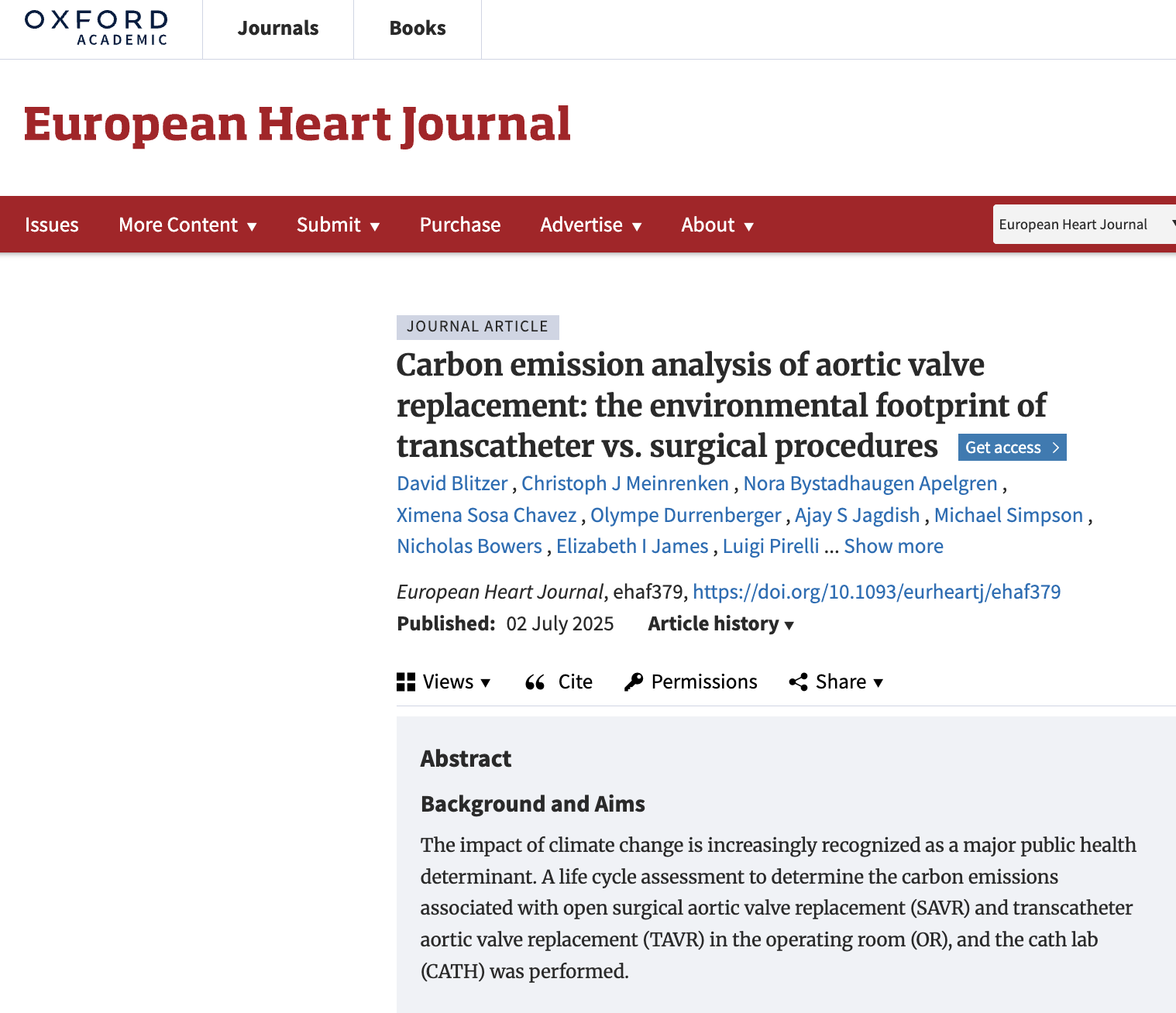
Anesthesia the next target in climate battle: Docs suggest reducing anesthesia: Would you suffer to combat climate change?
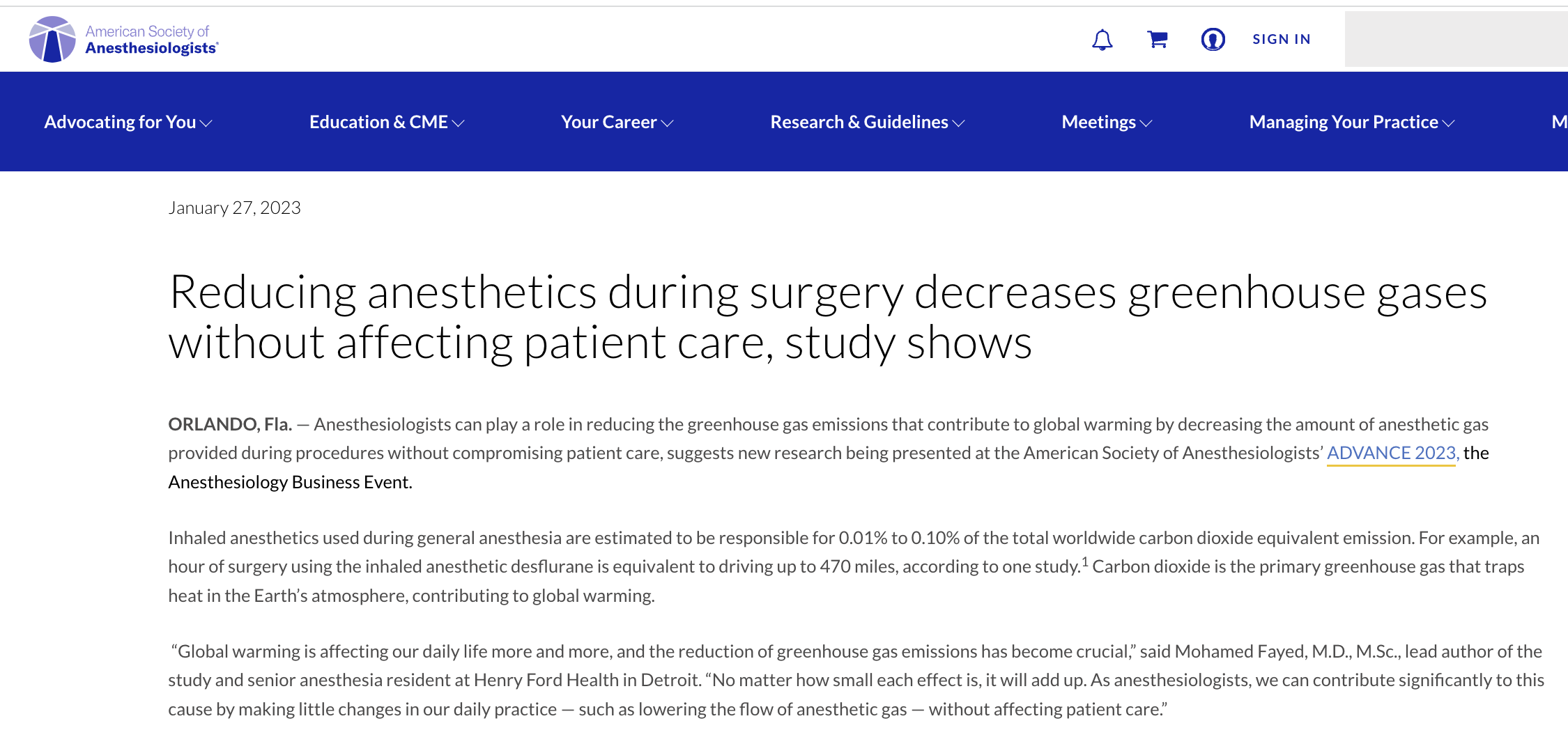
NY Post: Dr. Mohamed Fayed, a senior anesthetist at Detroit’s Henry Ford Health, made the suggestion during the American Society of Anesthesiologists’ annual conference last Friday in Orlando, Florida. “Global warming is affecting our daily life more and more, and the reduction of greenhouse gas emissions has become crucial,” he said. Dr. Fayed added, “No matter how small each effect is, it will add up. As anesthesiologists, we can contribute significantly to this cause by making little changes in our daily practice — such as lowering the flow of anesthetic gas — without affecting patient care.”
Study press release:“Anesthesiologists can play a role in reducing the greenhouse gas emissions that contribute to global warming by decreasing the amount of anesthetic gas provided during procedures without compromising patient care, suggests new research being presented at the American Society of Anesthesiologists’ ADVANCE 2023, the Anesthesiology Business Event.” [Climate Depot Note: The American Society of Anesthesiologists’ website appears to have pulled the article. but it is available here. & here.]
Research notes that inhaled anesthesia accounts for up to 0.1% of the world’s carbon emissions, which are regarded as the primary driver of global climate change. An hour of surgery using an inhaled anesthetic is equivalent to driving as many as 470 miles, according to a 2010 study.
#
Flashback 2020 Study in American Cancer Society Journal in 2020 Fretted over ‘carbon footprint of cancer care’ – ACS Journal: “Climate change and cancer” – Excerpt: “To date, no studies have estimated the carbon footprint of cancer care…The energy expenditure associated with operating cancer treatment facilities and medical devices, as well as the manufacturing, packaging, and shipment of devices and pharmaceuticals, contributes significantly to greenhouse gas emissions in cancer care…Some cancer treatment facilities have begun to consider their own carbon footprint and started a process to achieve carbon neutrality.”
Climate Depot’s Morano: “Here is a question for the American Cancer Society: If you need cancer treatment, would you go to a cancer treatment center that was worried about its carbon footprint? Or one that was worried about delivering the best possible modern care possible?”
#
How many can they come up with? Surgery Causes Global Warming?! Study Shows ‘Anesthesia Agent Is Greatest Potential Contributor to Global Warming’ – Claim: ‘Anesthetics used by a busy hospital contribute as much to global warming as the emissions from hundreds of cars per year’
Restrict anesthesia to save climate & Harvard Med to ‘Integrate Climate’ Into M.D. Curriculum & American Cancer Society Frets ‘carbon footprint of cancer care’ – The Great Medical Reset: Your Doctor will treat the climate first — not your well-being — and you will be happy. Doctors care more about planetary care than patient care.
Climate Depot’s Marc Morano on Addison Smith’s In Focus on One America TV – Broadcast Feb. 8, 2022.
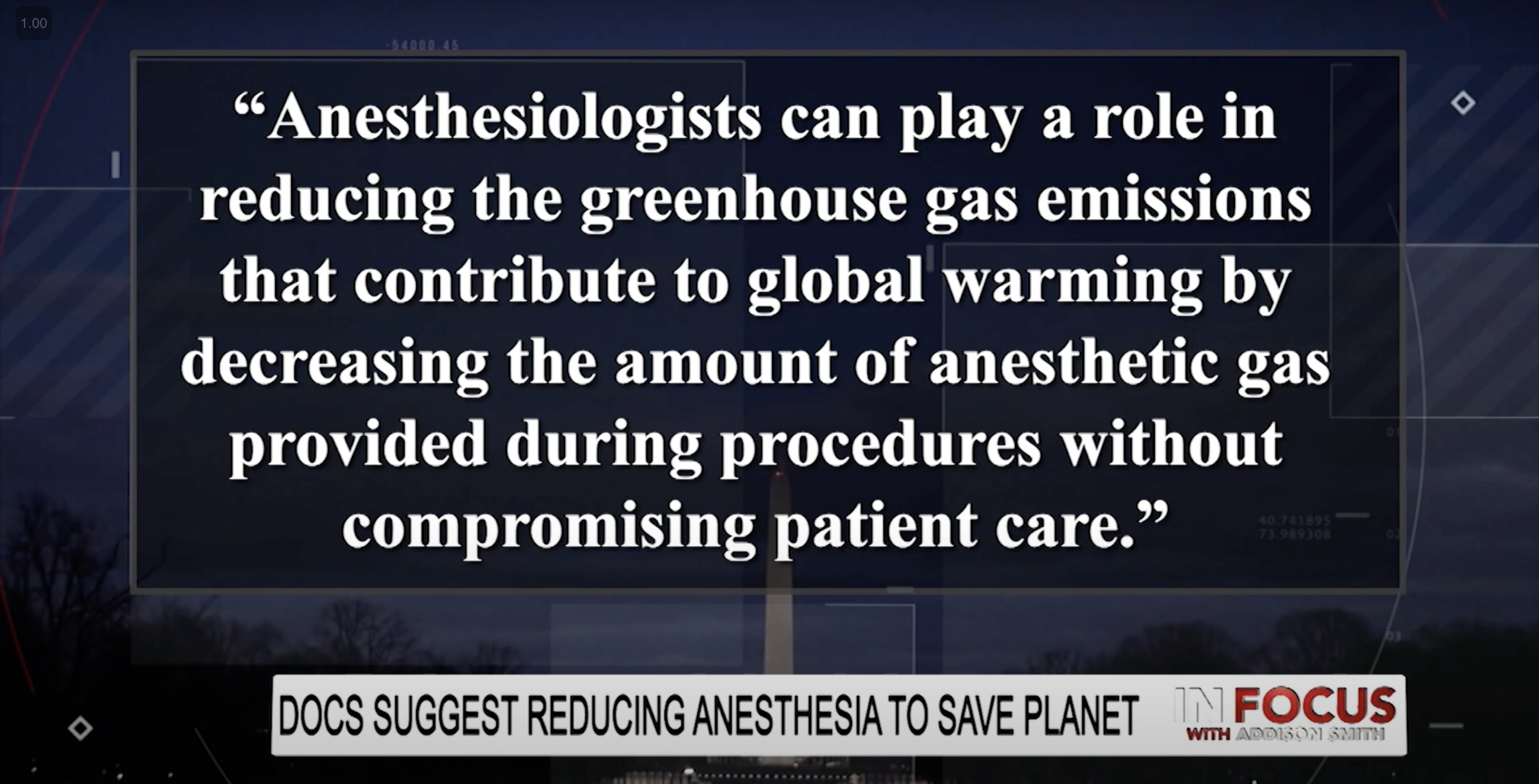 .
. 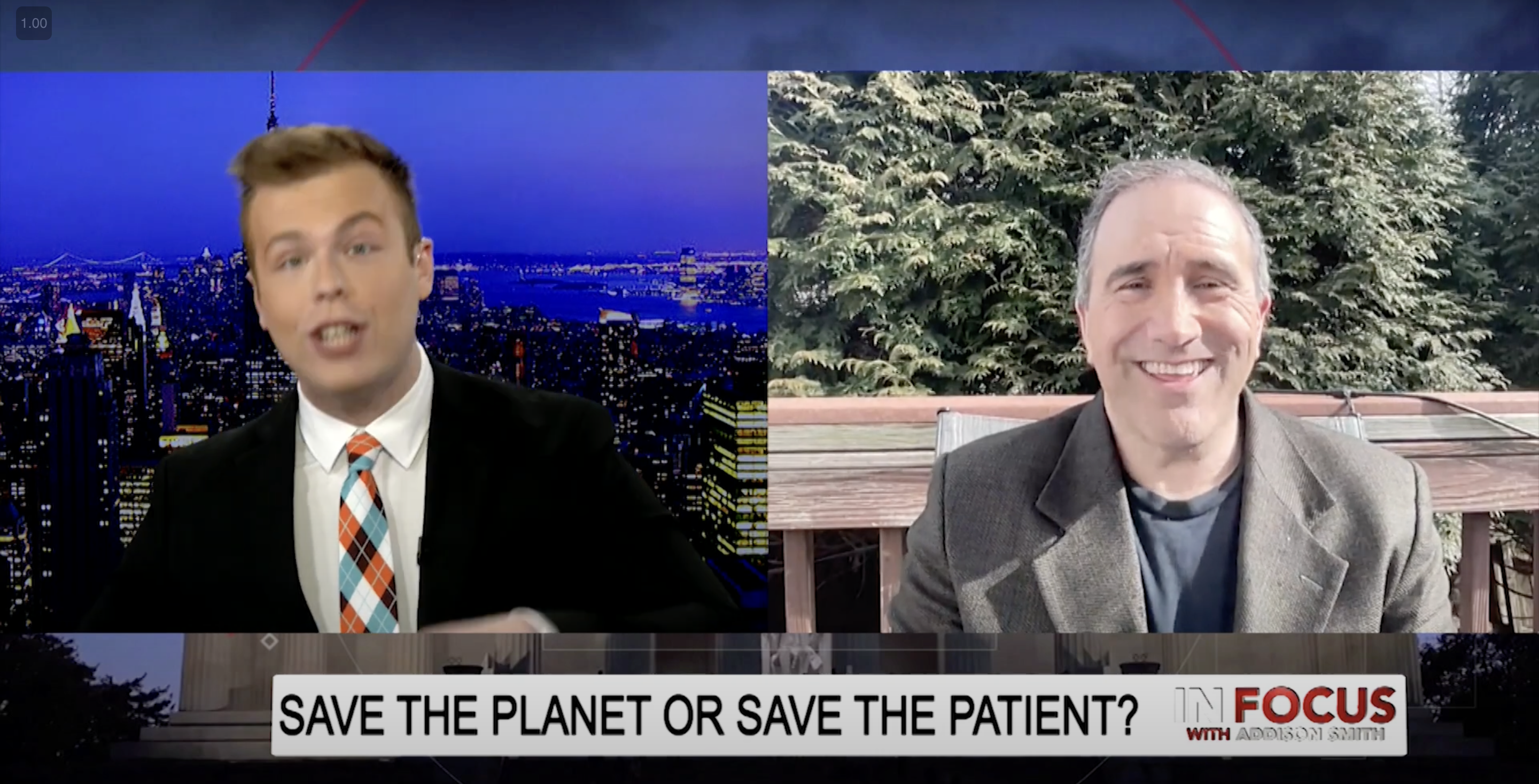
 .
. 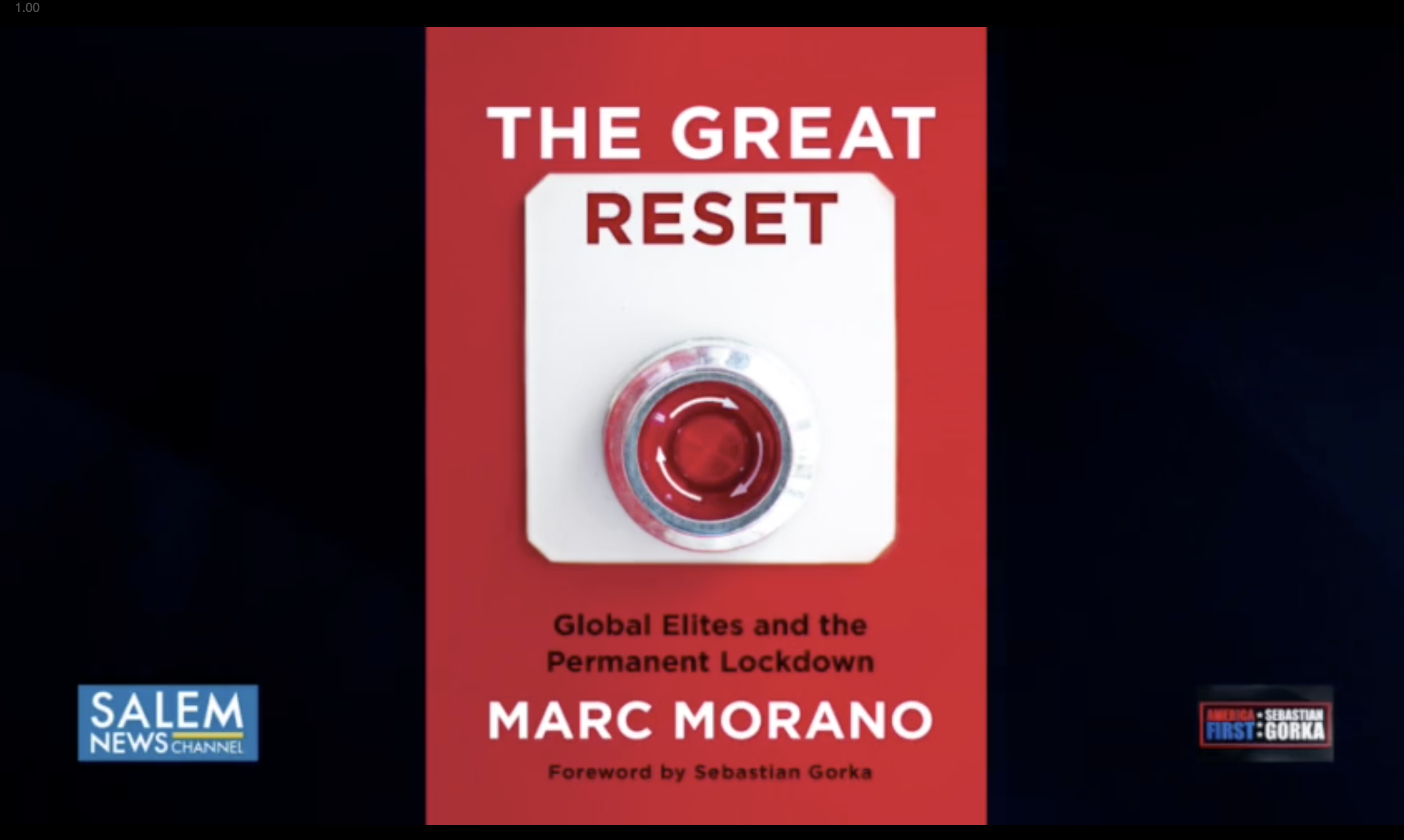
Reuters: Cannabis users may need ‘more than TWICE usual dose’ of anesthesia for surgery – “People who regularly use cannabis may need more than twice the usual dose of anesthesia for surgery, a U.S. study suggests.”
Claim: Surgical General Anesthetic is Contributing to Climate Change– Switching from general to regional anaesthetics may help cut greenhouse emissions and ultimately help reduce global warming, a new study claims. While regional anaesthetics numb a certain part of the body, general anaesthetics make patients totally unconscious for what tend to be more serious procedures. But unlike regional anaesthetics, generals use volatile and environmentally-unfriendly halogenated agents, such as desflurane, or nitrous oxide. … ‘Green-gional’ anesthesia: the non-polluting benefits of regional anesthesia to decrease greenhouse gases and attenuate climate change
#How many can they come up with? Surgery Causes Global Warming?! Study Shows ‘Anesthesia Agent Is Greatest Potential Contributor to Global Warming’– Claim: ‘Anesthetics used by a busy hospital contribute as much to global warming as the emissions from hundreds of cars per year’-
Claim: Surgical General Anesthetic is Contributing to Climate Change– Switching from general to regional anaesthetics may help cut greenhouse emissions and ultimately help reduce global warming, a new study claims. While regional anaesthetics numb a certain part of the body, general anaesthetics make patients totally unconscious for what tend to be more serious procedures. But unlike regional anaesthetics, generals use volatile and environmentally-unfriendly halogenated agents, such as desflurane, or nitrous oxide. … ‘Green-gional’ anesthesia: the non-polluting benefits of regional anesthesia to decrease greenhouse gases and attenuate climate change
Flashback 2019: Canadian Medical Association Journal: How health care contributes to climate change – Climate change is a growing health threat around the world — contributing to heat stroke, food insecurity, cardiorespiratory ailments and many other issues — and the health care industry is part of the problem. “It’s almost like the process of healing causes harm,” said Kent Waddington, cofounder of the Canadian Coalition for Green Health Care. Health care in Canada was responsible for 4.6% of national greenhouse gas emissions in 2009–2015, according to a recent study in PLOS Medicine. … The Canadian Coalition for Green Health Care has led projects to reduce the environmental impact of providing health care, such as promoting sustainable food in hospitals and reducing toxic chemicals used for cleaning.
2022: Operating rooms are the climate change contributor no one’s talking about – Two surgeons-in-training suggest some sustainable solutions for their energy-intensive discipline. ... Cancer care is an obvious target for greener efforts within surgery, Berlin notes, because it often involves intense levels of care over a short period of time. Plus, minimally invasive surgeries that require a lot of energy, including robotic-assisted operations, have become common treatments for cancers ranging from colorectal and uterine cancer to head and neck cancer. A robotic-assisted hysterectomy, for example, produces as much carbon as driving more than 2,200 miles in a car — the equivalent of a road trip from Ann Arbor, Mich., to Los Angeles. … Cancer care is an obvious target for greener efforts within surgery, Berlin notes, because it often involves intense levels of care over a short period of time. But perhaps the broadest way the oncology space could cut down on its greenhouse gas emissions is to change how surgical care is delivered, starting with permanently offering telemedicine.
2022: Association of American Medical Colleges: Hospitals take creative steps to reduce carbon footprint – As medical organizations increase their commitments to reduce greenhouse gases, hospitals report progress through quiet methods like changing anesthesia, fixing valves, and re-sterilizing devices.
Linnea Lueken: “Recommends that hospital staff mitigate this alleged danger, primarily by using less anesthesia, or opting for the use of less effective topical or more dangerous intravenous methods because “they have less of a negative environmental impact.” …. Doctors don’t use anesthesia for fun, they do it to reduce pain during medical procedures. These misanthropic M.D.s are advocating nothing more nor less than allowing people to suffer in the name of sustainability. …
We have protocols in place to limit medical tests on human subjects without their consent. Hospitals should be devoted to healing patients, not experimenting in loony sustainability projects on captive subjects.”

